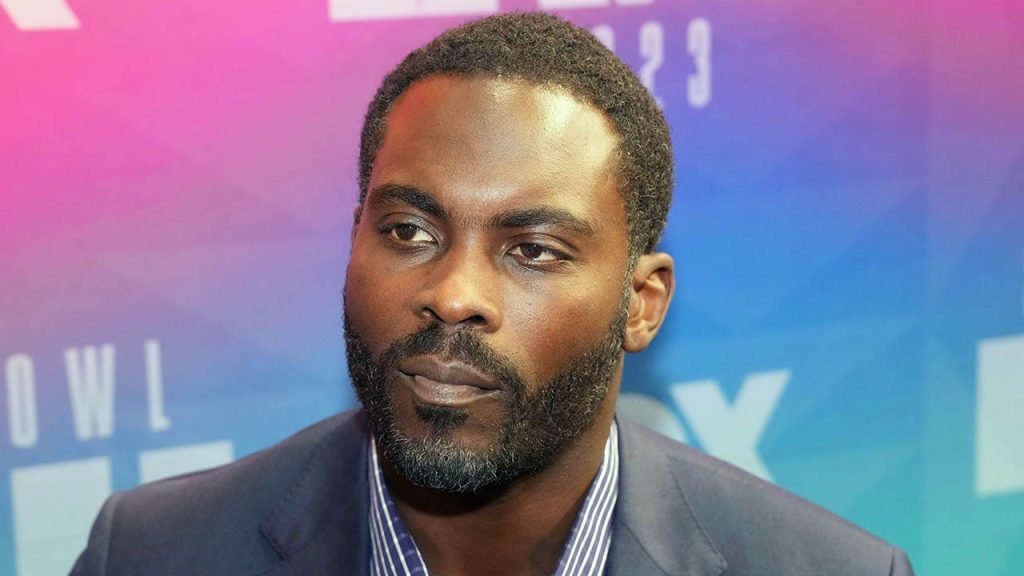Michael Vick’s journey from collegiate stardom to NFL infamy and now to the helm of a college football program is a narrative filled with both triumphs and tribulations. His appointment as head coach of Norfolk State University sparks a debate regarding redemption, second chances, and the complex intersection of sports, celebrity, and personal accountability.
Vick’s early career was marked by electrifying performances on the gridiron. As a quarterback for Virginia Tech, he captivated audiences with his exceptional speed and arm strength, earning All-American honors and solidifying his status as a top prospect. The Atlanta Falcons recognized his potential, selecting him as the first overall pick in the 2001 NFL Draft. Vick quickly rose to prominence, becoming one of the league’s most exciting players and gracing the cover of the popular video game, Madden NFL 2004. His virtual avatar mirrored his real-life athleticism, showcasing his blazing speed and powerful arm, further cementing his image as a dynamic force in the sport.
However, Vick’s meteoric rise was tragically interrupted by his involvement in a dog-fighting ring. In 2007, he pleaded guilty to financing the operation, a revelation that shocked the sporting world and tarnished his reputation irrevocably. The ensuing legal battle and prison sentence forced him to miss two NFL seasons and cast a long shadow over his career. The incident not only jeopardized his professional future but also sparked a national conversation about animal cruelty and the responsibilities of public figures.
Upon his release from prison in 2009, Vick embarked on a path to redemption. He publicly expressed remorse for his actions and actively sought opportunities to rebuild his image and career. The Philadelphia Eagles offered him a second chance in the NFL, a decision met with both support and criticism. Vick’s subsequent stints with the New York Jets and Pittsburgh Steelers allowed him to continue his playing career, albeit under a cloud of past transgressions. His on-field performance never quite reached the heights of his pre-incarceration days, but his perseverance demonstrated a commitment to reclaiming his place in the sport.
Following his retirement from professional football in 2015, Vick transitioned into coaching roles. He served as a coaching intern with the Kansas City Chiefs, reuniting with his former Eagles coach, Andy Reid. This experience provided valuable insight into the intricacies of coaching at the professional level. He also briefly held the position of offensive coordinator for the Atlanta Legends of the Alliance of American Football before stepping into the world of sports broadcasting as an analyst for NFL on FOX. These various roles allowed Vick to explore different facets of the game and further develop his understanding of football strategy and leadership.
Vick’s hiring at Norfolk State marks a new chapter in his career and a significant test of his rehabilitated image. The decision to appoint him as head coach has undoubtedly generated controversy, given his past actions. Some argue that his criminal record disqualifies him from a leadership position, particularly one that involves shaping the lives of young athletes. Others view his appointment as a testament to the power of redemption and an opportunity for Vick to use his experiences, both positive and negative, to guide and mentor the next generation of football players. The Norfolk State football program, coming off a 4-8 season in 2024, presents a challenging yet potentially rewarding opportunity for Vick to prove his coaching abilities and demonstrate his commitment to positive change.
The scrutiny surrounding Vick’s appointment is unavoidable. His past mistakes will forever be a part of his story. However, his willingness to acknowledge his errors, express remorse, and dedicate himself to personal growth offers a glimmer of hope for a more positive future. Whether or not he succeeds at Norfolk State remains to be seen, but his journey from disgraced athlete to college head coach serves as a compelling case study in the complexities of second chances, the enduring power of redemption, and the ongoing debate over how society judges and ultimately forgives those who have fallen from grace. His ability to lead and inspire his players, while navigating the inevitable public scrutiny, will determine the ultimate narrative of his coaching career. The weight of his past actions, juxtaposed with his potential for positive influence, creates a compelling storyline that will undoubtedly be closely followed by both supporters and critics alike.

